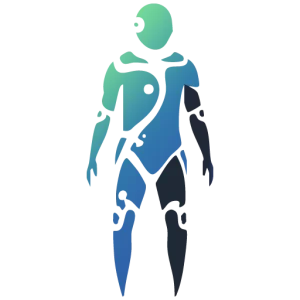Human-cEntred AI and Robotics for Assistive and Rehabilitative Technology towards Good Health and Well-being


Networking Grants

UK-Thai Health Alliance:
Advancing Assistive and Rehabilitative Technology
with
Human-Centred Robotics and AI for Good Health and Well-being






Overview
Over 4 million people are experiencing physical disabilities in Thailand with the majority suffering from mobility impairments. The main causes are ageing-related muscle weakness, stroke, brain or spinal cord injuries due to road traffic accidents, and traumas from heavy manual work. Disability in Thailand leads to loss of work, poverty and living dependence. Medical treatments, rehabilitation facilities, and access to assistive devices are limited disproportionately in the rural and poorer communities where over 95% of disabled people in Thailand live. These combined factors result in unsustainable and unmet welfare and significantly reduced living quality of people with disabilities.
The project will establish a new UK-Thai collaboration to generate innovative research ideas for advancing assistive and rehabilitative technology. Through networking events, meetings, visits, and workshops in both countries, we will foster knowledge exchange and skill transfer. We have brought together healthcare leaders with all necessary multidisciplinary expertise, including advanced soft robotics for comfortable medical devices, artificial intelligence for intelligent human-centred control, and specialists in physiotherapy and sports science for use-case analysis. This exciting collaboration will not only identify groundbreaking solutions to pressing healthcare challenges and stimulate technology advancement in Thailand, but it also lays the groundwork for a strong UK-Thai partnership to pursue larger collaborative research grants.
Our ultimate goal is to translate our co-developed research ideas into innovative medical devices with high adaptability, technology acceptance, and trustworthiness, empowering individuals with efficient assistance and rehabilitation for improved health and well-being.
This project aims to foster UK-Thailand collaboration and networking across multidisciplinary research groups to address the present healthcare needs in Thailand. The collaborative team includes:
- The VIVO Healthcare Technologies Hub in the UK specializing in:
- Soft and rehabilitative robotics – University of Bristol (UoB) <Leading university>,
- Neuroscience – Imperial College,
- Biomaterials – University College London,
- Biomedical engineering – University of the West of England and Strathclyde.
- The research center for Advanced Robotics and Intelligent Automation (ARIA) at Vidyasirimedhi Institute of Science and Technology (VISTEC), the top research institute in Thailand.
- Faculty of Sport Science at Chulalongkorn University (CU), the highest ranked academic university in Thailand.

Objectives
Obj. 1: Understanding the specific rehabilitation needs, expectations, and affordability across populations in Thailand, UK, and potentially other European and Asian regions.
Obj. 2: Analysing current rehabilitation and physiotherapy treatments and their limitations.
Obj. 3: Fostering knowledge and skill exchange between experts in soft robotics and medical rehabilitative technologies (UoB), AI-powered intelligent control (VISTEC), and the latest rehabilitative treatments and exercises for body strength and movement restoration (CU).
Obj. 4: Co-designing new concepts of a smart healthcare service centre with AI-powered assistive and rehabilitative technologies to address user acceptance and limited welfare accessibility, particularly in rural regions of Thailand.
